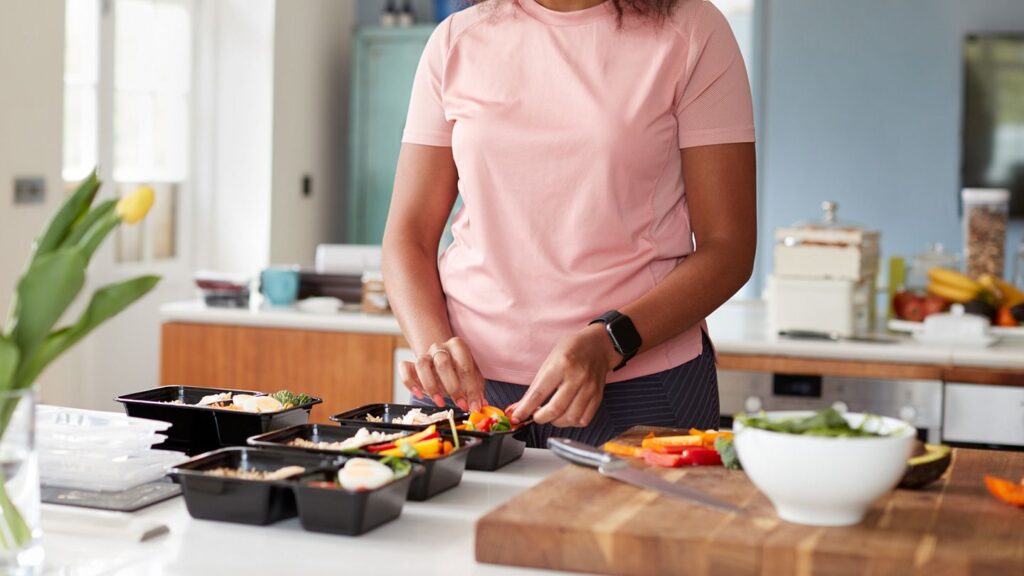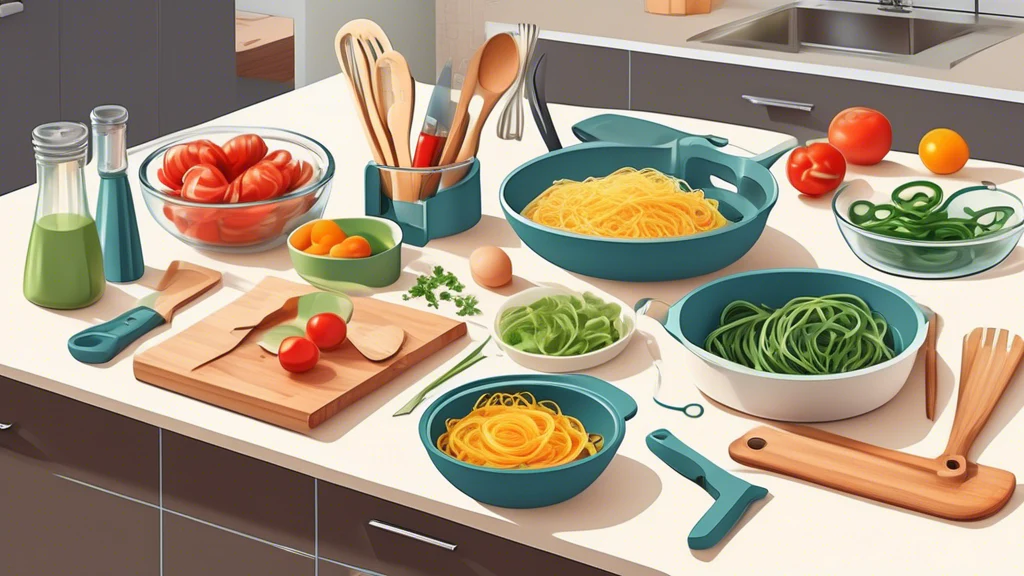Meal prepping has become a game-changer for busy individuals looking to maintain a healthy lifestyle while saving time and money. Whether you’re a working professional, a student, or someone who simply wants to streamline their cooking routine, meal prep can help you stay on track.
By planning and preparing meals in advance, you can avoid the stress of last-minute cooking and ensure that your meals are both nutritious and delicious. In this guide, we’ll share practical meal prep tips and tricks to help you create easy and flavorful meals with minimal effort.
Benefits of Meal Prepping

Table of Contents
Meal prepping offers numerous benefits that make it a worthwhile habit. One of the biggest advantages is the amount of time and effort it saves. By dedicating a few hours each week to preparing meals, you can significantly reduce the amount of time spent cooking daily. It also eliminates the stress of deciding what to eat at the last minute.
Another important benefit is portion control, which can help you maintain a balanced diet. When meals are pre-portioned, it becomes easier to manage calorie intake and ensure that you’re consuming the right mix of proteins, carbohydrates, and vegetables. Additionally, meal prepping helps reduce food waste and grocery costs. Buying ingredients in bulk and using them strategically prevents unnecessary purchases and ensures that food is utilized efficiently. Leftovers can be repurposed, minimizing waste and making meal preparation even more economical.
Essential Tools for Meal Prep

To make meal prepping efficient, having the right kitchen tools is essential. Airtight storage containers are a must-have as they help keep meals fresh and organized. A sharp knife set is crucial for quick and easy chopping, while a food scale ensures accurate portioning.
A blender or food processor can be useful for making smoothies, sauces, and purees. For those who prefer batch cooking, an Instant Pot or slow cooker can make the process even more effortless. Proper storage is key to maintaining freshness, so using glass containers can be beneficial as they preserve food quality longer. Labeling meals with dates helps track freshness, while freezing meals that won’t be consumed within a few days prevents spoilage.
Smart Grocery Shopping Tips
A well-thought-out grocery shopping strategy can make meal prepping smoother and more cost-effective. Planning meals in advance allows you to create a detailed shopping list, preventing impulse purchases and ensuring that only necessary items are bought. Buying in bulk can save money on staples such as rice, pasta, and lentils, while fresh produce should be chosen based on longevity and seasonality. Vegetables like carrots, bell peppers, and spinach last longer and are great for meal prepping. Checking for seasonal produce is also a smart way to enhance the flavor and nutritional value of meals while keeping costs low.
Meal Prep Tips and Tricks for Beginners
For those new to meal prepping, starting with simple recipes is the best approach. Overcomplicating the process can be overwhelming, so it’s advisable to begin with a few basic dishes that require minimal ingredients and preparation time. Batch cooking is an efficient method, as it allows multiple meals to be prepared at once. Freezer-friendly meals can be a great option for long-term meal prep, ensuring that there’s always a ready-to-eat option available. Using versatile ingredients like grilled chicken, quinoa, and roasted vegetables can help create a variety of meals without requiring additional preparation.
Best Ingredients for Meal Prepping
Selecting the right ingredients is crucial for successful meal prepping. Protein sources such as chicken breast, turkey, tofu, eggs, lentils, and chickpeas provide essential nutrients and can be used in a variety of dishes. Healthy carbohydrates like brown rice, quinoa, whole wheat pasta, and sweet potatoes offer sustained energy and complement any meal. Certain vegetables, such as carrots, bell peppers, zucchini, cauliflower, and kale, are ideal for meal prepping because they stay fresh longer and maintain their texture when stored properly.
Organizing Your Meal Prep Routine
A structured routine can make meal prepping a seamless part of daily life. Setting a fixed schedule, such as dedicating Sunday afternoons to meal prep, can help establish consistency. Proper organization is also important, so labeling meals and storing them appropriately can ensure that food stays fresh and easily accessible. Investing in high-quality meal prep containers can make a big difference in maintaining food quality and preventing spills or leaks. By following a routine and staying organized, meal prepping becomes a sustainable and rewarding habit.
Meal Prep Ideas for Different Diets
Meal prepping can be tailored to different dietary preferences and needs. For vegetarians and vegans, options like chickpea salad bowls, lentil soups, and vegetable stir-fry with tofu provide a balanced mix of nutrients. Those looking for high-protein meal prep options can consider grilled chicken with brown rice and steamed vegetables, egg muffins, and protein smoothies. Budget-friendly meal prep ideas include beans and rice, homemade veggie wraps, and one-pot lentil stews, which are both nutritious and cost-effective.
Common Mistakes to Avoid
There are several common mistakes that can make meal prepping less effective. Over-prepping is one of the biggest pitfalls, as preparing too many meals at once can lead to food spoilage. Another issue is eating the same meals repeatedly, which can lead to boredom and decreased motivation to continue meal prepping. Rotating recipes and incorporating different flavors can keep meals exciting. Ignoring portion control can also be problematic, as it may lead to overeating or consuming unbalanced meals. Measuring ingredients and following portion guidelines can help maintain a healthy diet.
Quick and Easy Meal Prep Recipes
Meal prepping doesn’t have to be time-consuming or complicated. For breakfast, options like overnight oats with nuts and berries or scrambled eggs with spinach and whole wheat toast are quick and nutritious. Lunch ideas include quinoa salad with roasted vegetables and feta cheese or chickpea and avocado wraps. For dinner, grilled salmon with brown rice and steamed broccoli or lentil curry with whole wheat roti are both delicious and easy to prepare. By incorporating a variety of recipes, meal prepping becomes more enjoyable and sustainable.
For delicious and authentic Indian cuisine, check out Raj’s Corner, your go-to spot for flavorful meals that bring tradition to your table!
Conclusion
Meal prepping is an excellent way to save time, eat healthier, and reduce food waste. By following these meal prep tips and tricks, anyone can create an efficient and enjoyable cooking routine. Starting small and staying consistent can make a big difference in maintaining a meal prep habit. Whether you’re looking to simplify your daily meals, save money on groceries, or improve your diet, meal prepping can be a valuable tool. For more meal planning inspiration, visit IndianFoodGuide.